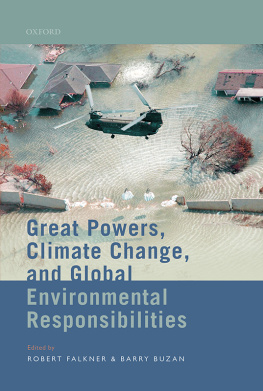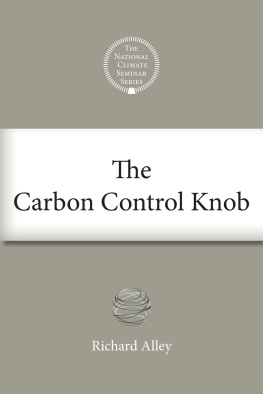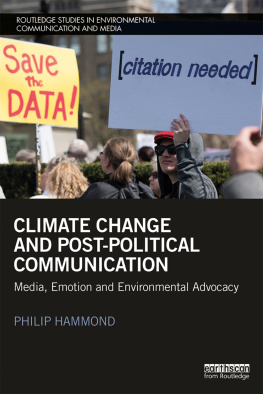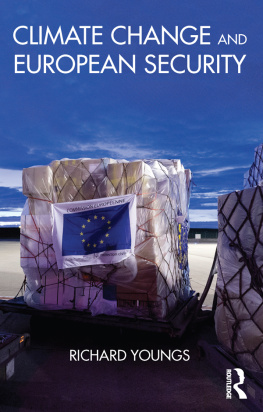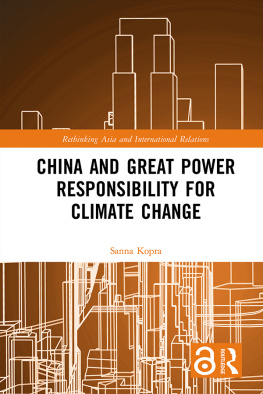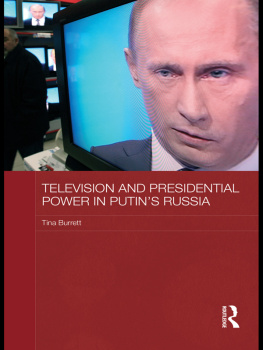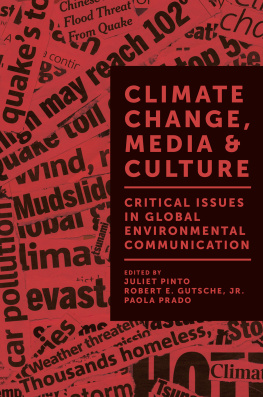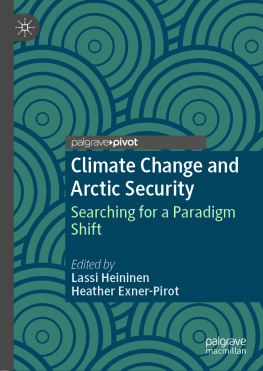Communicating Climate Change in Russia
The attitude of Russia towards climate change is extremely important for the success of climate change control policies worldwide, as Russia, with its cold climate and vast resources of carbon fuels, is one of the worlds biggest polluters. Moreover, Russia frequently comes across as not being very interested in containing environmental pollution. This book explores how issues to do with climate change are handled by the Russian media. It discusses how the state and economic elites have influenced Russias environmental communication, with the states control of the media strengthening since Putin came to power, and with control being exercised in some cases by ignoring or silencing the key issues. However, the book also shows how, recently, elites and the state in Russia have begun to realise that it is in the states best interest to pursue more climate-oriented policies. The book concludes by examining how the communication of climate change issues in Russia could be improved and by assessing the extent to which a recent change in state climate policy could mean that media coverage of climate change in Russia will keep increasing.
Marianna Poberezhskaya is a Lecturer in International Relations at Nottingham Trent University, UK.
BASEES/Routledge Series on Russian and East European Studies
Series editor: Richard Sakwa
Department of Politics and International Relations, University of Kent
Editorial Committee:
Roy Allison, St Antonys College, Oxford
Birgit Beumers, Department of Theatre, Film and Television Studies, University of Aberystwyth
Richard Connolly, Centre for Russian and East European Studies, University of Birmingham
Terry Cox, Department of Central and East European Studies, University of Glasgow
Peter Duncan, School of Slavonic and East European Studies, University College London
Zoe Knox, School of History, University of Leicester
Rosalind Marsh, Department of European Studies and Modern Languages, University of Bath
David Moon, Department of History, University of York
Hilary Pilkington, Department of Sociology, University of Manchester
Graham Timmins, Department of Politics, University of Birmingham
Stephen White, Department of Politics, University of Glasgow
Founding Editorial Committee Member:
George Blazyca, Centre for Contemporary European Studies, University of Paisley
This series is published on behalf of BASEES (the British Association for Slavonic and East European Studies). The series comprises original, high-quality, research-level work by both new and established scholars on all aspects of Russian, Soviet, post-Soviet and East European Studies in humanities and social science subjects.
1 Ukraines Foreign and Security Policy, 19912000
Roman Wolczuk
2 Political Parties in the Russian Regions
Derek S. Hutcheson
3 Local Communities and Post-Communist Transformation
Edited by Simon Smith
4 Repression and Resistance in Communist Europe
J.C. Sharman
5 Political Elites and the New Russia
Anton Steen
6 Dostoevsky and the Idea of Russianness
Sarah Hudspith
7 Performing Russia Folk Revival and Russian Identity
Laura J. Olson
8 Russian Transformations
Edited by Leo McCann
9 Soviet Music and Society under Lenin and Stalin
The baton and sickle
Edited by Neil Edmunds
10 State Building in Ukraine
The Ukrainian parliament, 19902003
Sarah Whitmore
11 Defending Human Rights in Russia
Sergei Kovalyov, dissident and Human Rights Commissioner, 19692003
Emma Gilligan
12 Small-Town Russia
Postcommunist livelihoods and identities: a portrait of the Intelligentsia in Achit, Bednodemyanovsk and Zubtsov, 19992000
Anne White
13 Russian Society and the Orthodox Church
Religion in Russia after Communism
Zoe Knox
14 Russian Literary Culture in the Camera Age
The word as image
Stephen Hutchings
15 Between Stalin and Hitler
Class war and race war on the Dvina, 194046
Geoffrey Swain
16 Literature in Post-Communist Russia and Eastern Europe
The Russian, Czech and Slovak fiction of the changes, 198898
Rajendra A. Chitnis
17 The Legacy of Soviet Dissent
Dissidents, democratisation and radical nationalism in Russia
Robert Horvath
18 Russian and Soviet Film Adaptations of Literature, 19002001
Screening the word
Edited by Stephen Hutchings and Anat Vernitski
19 Russia as a Great Power
Dimensions of security under Putin
Edited by Jakob Hedenskog, Vilhelm Konnander, Bertil Nygren, Ingmar Oldberg and Christer Pursiainen
20 Katyn and the Soviet Massacre of 1940
Truth, justice and memory
George Sanford
21 Conscience, Dissent and Reform in Soviet Russia
Philip Boobbyer
22 The Limits of Russian Democratisation
Emergency powers and states of emergency
Alexander N. Domrin
23 The Dilemmas of Destalinisation
A social and cultural history of reform in the Khrushchev era
Edited by Polly Jones
24 News Media and Power in Russia
Olessia Koltsova
25 Post-Soviet Civil Society
Democratization in Russia and the Baltic States
Anders Uhlin
26 The Collapse of Communist Power in Poland
Jacqueline Hayden
27 Television, Democracy and Elections in Russia
Sarah Oates
28 Russian Constitutionalism
Historical and contemporary development
Andrey N. Medushevsky
29 Late Stalinist Russia
Society between reconstruction and reinvention
Edited by Juliane Frst
30 The Transformation of Urban Space in Post-Soviet Russia
Konstantin Axenov, Isolde Brade and Evgenij Bondarchuk
31 Western Intellectuals and the Soviet Union, 192040
From Red Square to the Left Bank
Ludmila Stern
32 The Germans of the Soviet Union
Irina Mukhina
33 Re-constructing the Post-Soviet Industrial Region
The Donbas in transition
Edited by Adam Swain
34 Chechnya Russias War on Terror
John Russell
35 The New Right in the New Europe
Czech transformation and right-wing politics, 19892006
Sen Hanley
36 Democracy and Myth in Russia and Eastern Europe
Edited by Alexander Wll and Harald Wydra
37 Energy Dependency, Politics and Corruption in the Former Soviet Union
Russias power, Oligarchs profits and Ukraines missing energy policy, 19952006
Margarita M. Balmaceda
38 Peopling the Russian Periphery
Borderland colonization in Eurasian history
Edited by Nicholas B. Breyfogle, Abby Schrader and Willard Sunderland
39 Russian Legal Culture Before and After Communism
Criminal justice, politics and the public sphere
Frances Nethercott
40 Political and Social Thought in Post-Communist Russia
Axel Kaehne
41 The Demise of the Soviet Communist Party
Atsushi Ogushi
42 Russian Policy towards China and Japan
The Eltsin and Putin periods
Natasha Kuhrt


